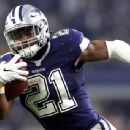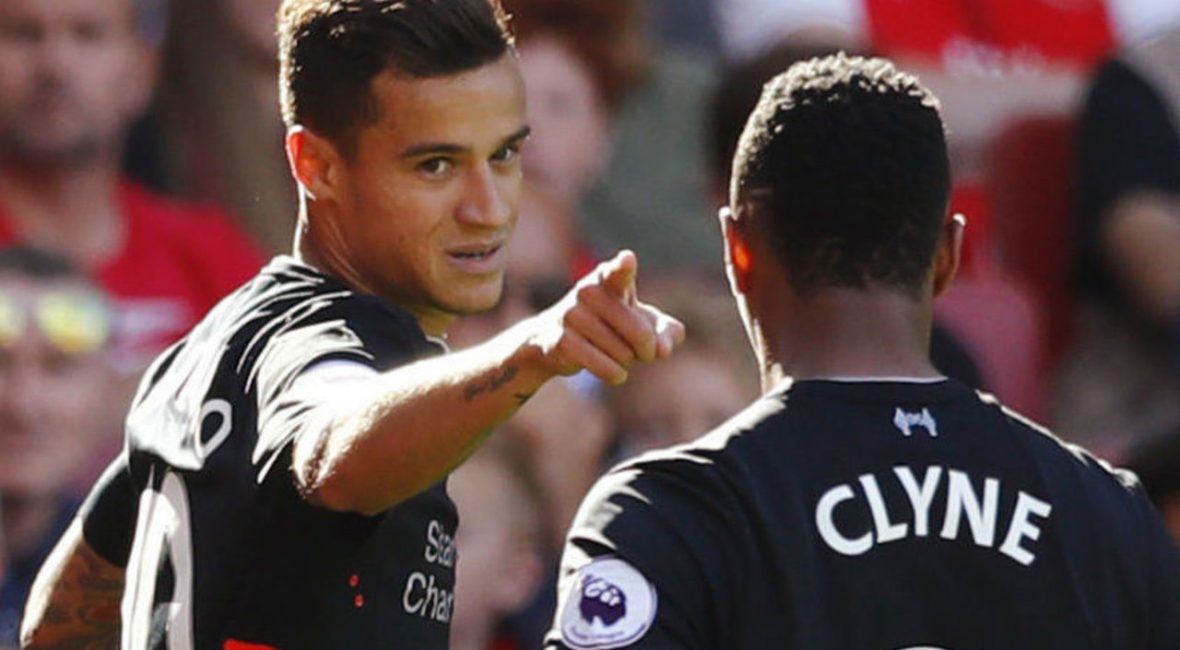FRISCO, Texas — Dallas Cowboys running back Ezekiel Elliott is eligible to play in Sunday’s season opener against the New York Giants even though an arbitrator upheld Elliott’s six-game suspension handed down by commissioner Roger Goodell.
In a temporary restraining order hearing in U.S. District Court in Sherman, Texas, on Tuesday, NFL attorneys acknowledged that, because of the timing of Harold Henderson’s decision to uphold Elliott’s suspension for violating the personal conduct policy, Elliott will be able to play in Week 1 against the Giants.
The NFL issued a statement on Twitter explaining Elliott being cleared to play Sunday.
“In the absence of a ruling from Mr. Henderson at the outset of the hearing, the judge indicated his desire to have the appropriate time to consider all legal issues before making a ruling,” the NFL explained. “To that end, the judge asked counsel whether it was prepared to allow Mr. Elliott’s suspension, if upheld, to begin after week one allowing him time to make that ruling. In deference to the judge, NFL counsel agreed that Mr. Elliott would be permitted to play this weekend regardless of the timing of the decision. When the decision was issued, the judge advised that in light of the league’s agreement, he would allow additional filings and make his decision by Friday.”
Elliott’s availability for Week 2 at the Denver Broncos and beyond is in doubt. Judge Amos Mazzant said he will make a decision on Elliott’s temporary restraining order by Friday at 6 p.m. ET.
-
While the Cowboys back will be allowed to play Week 1, he may have to serve a six-game ban afterward including a Week 8 game against Washington.

What happens now that an arbitrator has upheld Zeke’s suspension? All your burning questions on the next steps in the process answered here.
1 Related
If the TRO is not granted and Elliott does not take the case further in the legal system, then the first game Elliott would be eligible to play would be Nov. 5 against the Kansas City Chiefs.
Elliott’s attorneys said they intend to take the running back’s case to the federal level if necessary.
“Mr. Elliott is looking forward to having his day in federal court where the playing field will be level and the NFL will have to answer for its unfair and unjust practices,” Elliott’s attorneys said in a statement.
A spokesman for the Cowboys said the team has no comment on Tuesday’s decision.
That Elliott will be available Sunday could be viewed as a minor victory for the running back and the Cowboys. While the Cowboys express support for Elliott’s potential replacements, Darren McFadden, Alfred Morris and Rod Smith, none is as good as Elliott, who led the NFL in rushing with 1,631 yards last year.
The Cowboys were 3.5-point favorites over the Giants at the majority of Las Vegas sportsbooks, prior to Elliott’s being cleared to play in Week 1. The line ticked up to Dallas -4 after the news was announced.
Elliott took part in Tuesday’s meetings and walk-through at the Cowboys’ practice facility, The Star, in Frisco, Texas, before heading to Paul Brown District Court, roughly 50 minutes away, in time for the hearing. He is expected to be at the Cowboys’ full-pads practice on Wednesday.
On Aug. 11 the NFL announced a six-game suspension for violating the personal conduct policy, citing “persuasive” evidence Elliott committed physical abuse against Tiffany Thompson, a former girlfriend, at least three times in July 2016.
Despite Elliott’s ability to play Sunday, his attorneys issued a statement decrying Henderson’s decision.
“We are extremely disappointed with Mr. Henderson’s inability to navigate through league politics, and follow the evidence and, most importantly, his [conscience],” Elliott’s attorneys said in a statement.
The statement also contends that Elliott is the “victim of a conspiracy orchestrated by the National Football League and its officers to keep exonerating evidence from the decision-makers, including the advisors and Roger Goodell.”
Elliott had his appeal heard last week in New York with three days of testimony lasting 25 hours from Elliott and multiple experts and witnesses, although Thompson was not allowed to be called. It was revealed during the hearing that the league’s lead investigator, Kia Wright Roberts, was not at the meeting in which Goodell and the four advisors reached the conclusion Elliott needed to be suspended. Roberts was the only NFL employee to interview Thompson, doing so six times, and she recommended Elliott not be disciplined.
That is among the reasons why the NFLPA has gone to court to continue the fight on Elliott’s behalf, believing the process lacks fundamental fairness. The NFL counters that the Deflategate case involving Tom Brady sets precedent that Goodell has the right to make such decisions.
In the conclusion of his decision, Henderson explained that as arbitrator it was his job to evaluate the fairness of the NFL’s process in which it penalized Elliott, not whether or not the punishment was fitting.
“The review is to determine whether the player was afforded adequate notice of his alleged violation, the right to representation, opportunity to present evidence, and a decision which is fair and consistent,” Henderson wrote. “In a case involving violation of a policy, fair and consistent means whether the process and result were in compliance with the terms of that policy. This one is, in every respect.”





